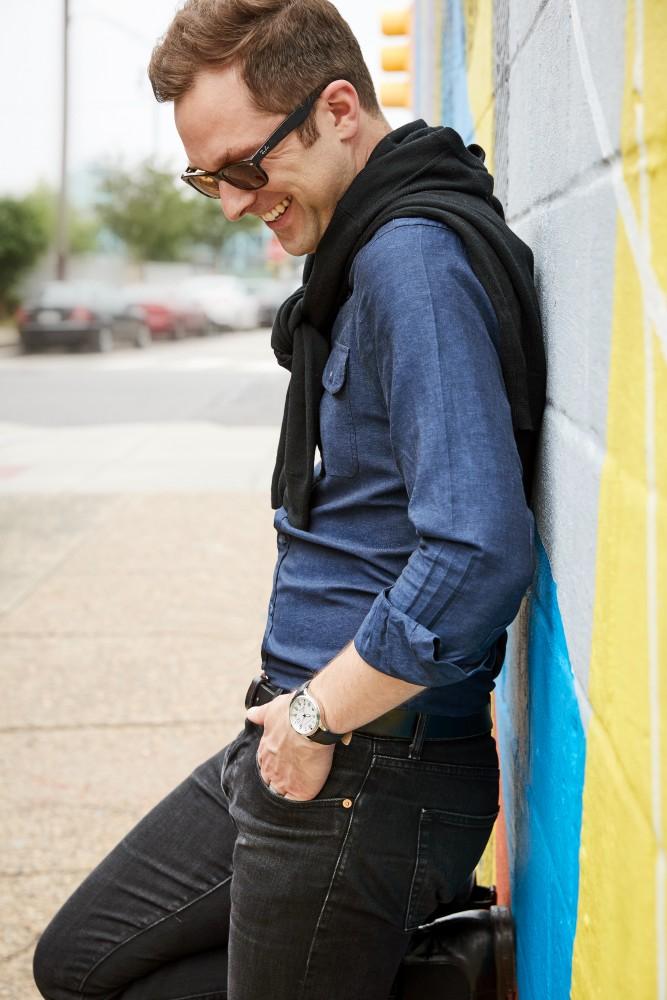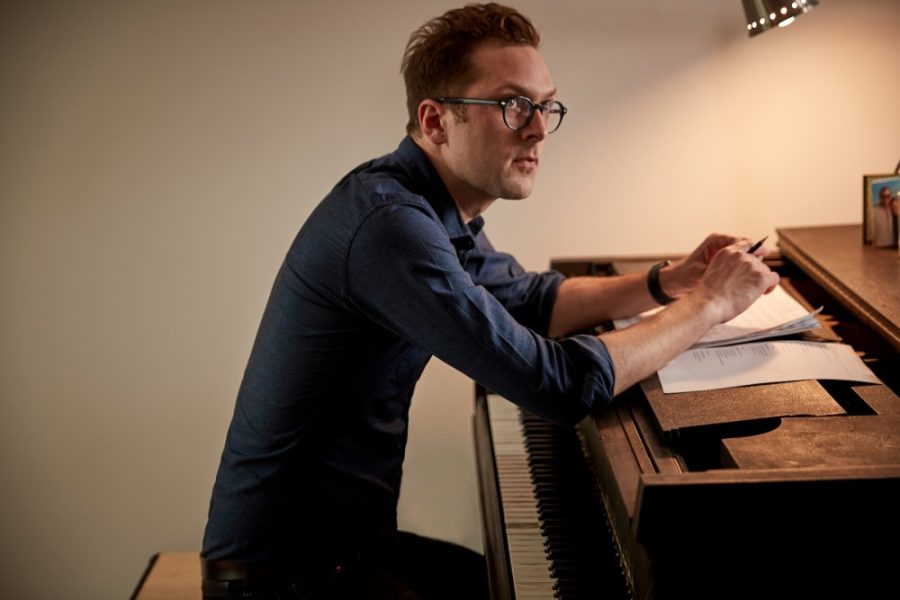The Daily Wildcat spoke with composer Scott Ordway about his upcoming world premiere performance of In the Kingdom of Bells. The piece will be premiered Friday Nov. 30, and performed again Sunday, Dec. 2 alongside the Tucson Symphony Orchestra. Ordway is a professor of Composition at Rutgers University, and his works have been played around the world.
The Daily Wildcat: What music did you listen to growing up?
Scott Ordway: I grew up listening to 1990s’ grunge and mainstream alternative music and later moved on to more obscure indie rock and punk. I discovered classical music in college and immediately fell in love with it. In addition to the incredible richness and emotional depth of the music itself, there was something very magical to me about the culture and rituals of the concert hall itself. And it feels even more relevant now than it was in the early 2000s when I started composing. We all spend so much time moving around, talking and interacting, looking at screens and basically being stressed out all the time. But when you go into a concert hall and sit down in your seat and the music begins, you enter a different type of reality. You ought not to use your phone, you aren’t talking to people and there is nothing to look at other than the performers. At the same time, though, you are sharing a profound experience with the people around you. As a result, your mind slows down, and you can breathe and just be still for a moment, which is a rare thing in our lives these days. You can let the music transport you, or you can follow your own thoughts wherever they lead.
DW: How long have you been composing, and how did you get started?
SO: I have created my own music continuously since I was perhaps 12 years old, but I only started composing in the classical tradition in college when I first encountered orchestral music, chamber music, opera and choral music.
RELATED: Student profile: This isn’t her first rodeo
DW: How do you start the music composition process?
SO: When I start a new piece, I spend a long time thinking about the work before I actually begin writing. I only begin writing the music down once I have a strong sense of the piece internally — how it will be structured, what the sound will feel like and how it will move through time. If I have 100 days to write a piece, I normally spend the first 75 of them thinking and only the last 25 actually writing things down. Once the piece comes into focus, so to speak, it can be very quick to get it down on paper. But the process of finding the piece can be extremely slow and sometimes very, very frustrating. When I do find it, the feeling is unlike anything else in the world. That feeling is what I’m chasing as a composer and what I hope listeners can share in when they hear the music.

DW: What role did your residency at the Visby International Centre for Composers play in composing In the Kingdom Bells?
SO: The month that I spent at VICC on the beautiful Swedish island of Gotland was incredibly important for this piece. I’d be working on it for several months already in my studio in Philadelphia, struggling to find exactly the right direction. But once I arrived in Sweden, the pace of life slowed down. I was able to take walks in the forest every day, to spend time near the ocean and to really have time alone to think and allow the piece to develop. Everything came into focus once I was there, and then I worked furiously — sometimes 12 or 14 hours each day — to get the piece down on paper. I am very grateful to have been invited to the center when I was.
RELATED: Empowering women through the art of pole fitness
DW: What is your reaction to your music being played all around the world?
SO: One of my favorite things about being a composer is that it brings me to so many wonderful new places around the world and that I have the opportunity to collaborate with such inspiring musicians when I travel. A great collaboration can be a source of inspiration for so many future projects, and every new trip opens new doors.
DW: Can you walk me through an average day, during which you spend time composing?
SO: I’m an early riser and typically wake up around 4:30 or 5 a.m. My wife and I get our daughter Sophie, who is 16 months old, ready for daycare and eat breakfast and play with her. They leave the house around 6:30 a.m., and I head up to my studio. When I’m composing, I always start the day with the most difficult creative tasks, whether those are sketching a new work, making difficult edits or orchestrating a passage that I’ve already composed. After lunch, I turn to more practical matters: working on grant applications, project proposals, editing recordings and making web updates or social media posts. I also use that time to schedule meetings or phone calls with collaborators or with my manager to keep plans for the future moving ahead. Around 4 p.m., I go pick up my daughter and we go to the store to buy food for dinner, and I cook a nice meal for myself and my family, usually accompanied by a good bottle of wine. Of course, that’s the idea daily schedule, and life doesn’t always work out as planned!
Follow Daily Wildcat on Twitter









